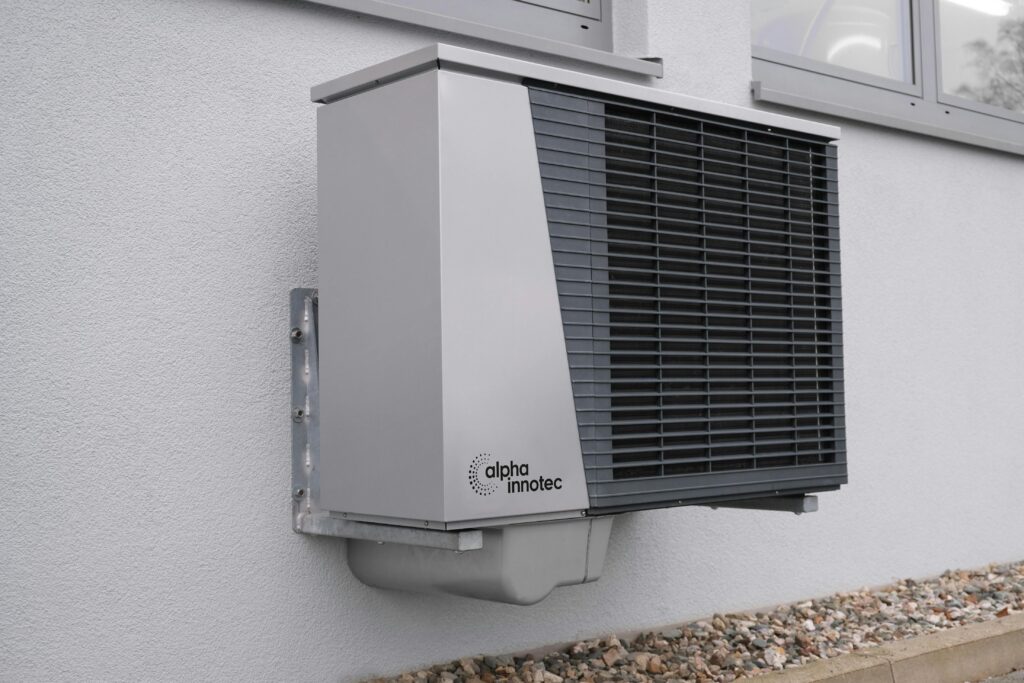The UK government and various other private programs have been promoting heat pumps as a heating and cooling alternative for the various appliances found in homes. The push for this new technology is understandable as it has many benefits, but there are also circumstances where heat pumps may not be right for your home.
But first, let’s briefly cover what heat pumps do. The name can be deceptive, or at least reductive since heat pumps are both heating and cooling devices. They can extract the heat from the air and filter it into a home or reverse this process to cause cooling, depending on the season. This makes them more versatile than boilers.
Powered by electricity, they utilise an outdoor unit that changes the temperature of a renewable coolant to pass heat or cold through the system (this simplified explanation leaves out a lot). Heat pumps can also come in multiple configurations, with some using underground or underwater components to help control temperatures.
While heat pumps are growing in popularity, a large swathe of the population is new to the concept. Many proponents have set up online resources to further the average person’s knowledge of the technology. Sites like visitaheatpump.com even allow you to set up a visit to a home and learn more about heat pumps in action.
Let’s look over why the technology is popular and what types of homes it will work best in.
Why Are Heat Pumps Gaining Popularity
Heat pumps have a lot going for them. They use a lot less power to heat the home and are environmentally friendly, often cutting heating costs by £940 for an air source heat pump compared to an old, inefficient boiler. This can increase by more than double for a ground source heat pump but they are also magnitudes more expensive to install. They are primarily electricity-based so they don’t use fossil fuels and can be attached to other sources of power generation, such as solar panels.
The popularity has also been bolstered by government programs such as the Boiler Upgrade Scheme, which nets applicants £7,500 for the installation. Similar policies like ECO4 can offer much more but the exact rate depends on assessment and inspection. Heat pump grant applications rose by 50% in 2023, so clearly the grants are helping the interest in this technology.
One of the primary factors holding heat pumps back has been the often-massive investment they initially require. With the help of a heat pump grant this becomes a non-issue, allowing for covering all or a major chunk of the purchase costs (depending on the type of heat pump you get).
Another factor is that the government is looking to slowly phase out fossil fuel technologies. With gas becoming more expensive, there is only so much price caps can do. The shift towards electricity still relies on the fossil fuel grid but the efficiency
Heat pumps are between 3 to 5 times more efficient than most boilers operating at their highest efficiencies, although there are caveats to this that we will cover. Additionally, a heat pump can extract heat from the air with only electricity as an input. For this reason, they are a viable option for areas not on the gas grid or where gas is expensive and prone to excessive price volatility.
Heat pumps can also be a great option for homes that need versatile air conditioning for both summer and winter. As a technology that can act as both a heater and a cooling system without taking up too much space and relying on electricity, they have a certain appeal to many consumers.
That all may sound good but that doesn’t mean it’s ideal for every home or region. There are a few reasons that heat pumps may not be the best choice.
Are They Suitable For Your Home?
The first issue can be the potential price and why it might vary from household to household. Heat pumps are between a fairly large to massive investment if you aren’t eligible for a grant. Most grants are means-tested for income and benefits. Many residents may fall out of a lot of the more lucrative grants.
The other issue is that homes need to be primed properly for heat pump installation. If you have bad insulation in your home or shoddy walls and a lot of heat escape zones, the heat pump will have to use up more energy to maintain temperatures. This will make it no more or less cost-effective than a standard A-rated boiler. Considering the price, you may want to stick with a good boiler in such situations.
There are also issues pertaining to extreme weather. If you live in colder regions of the far North, freezing temperatures can cause problems with heat pumps. They lose efficiency and may even suffer from equipment failures like ice blockages. Alternatively, you can opt for a high-temperature heat pump.
That said, the technology is gaining steam because it has clear advantages for most homes in the UK. Its main obstacle has been expense which is why grants are giving it a leg up. Let’s see if this pace continues in the future.

Leave a Reply